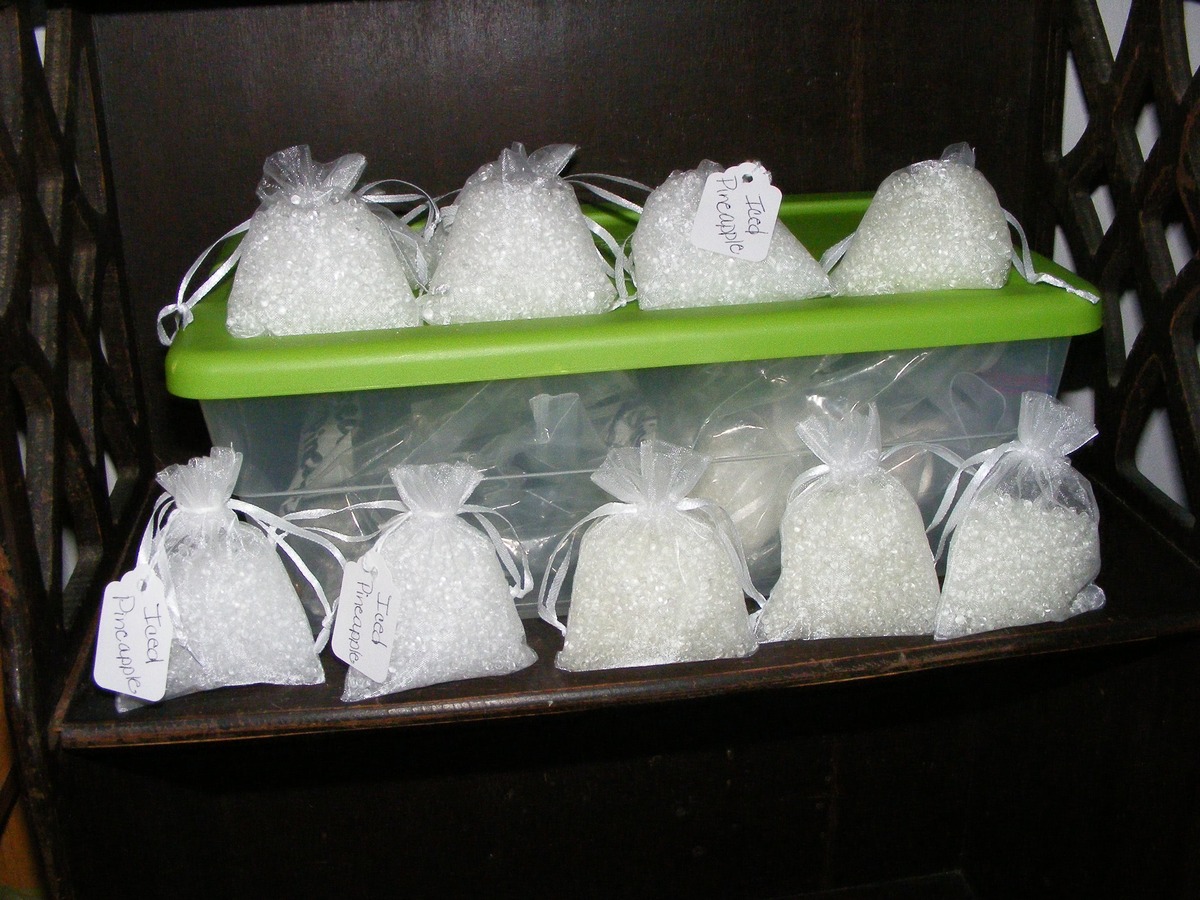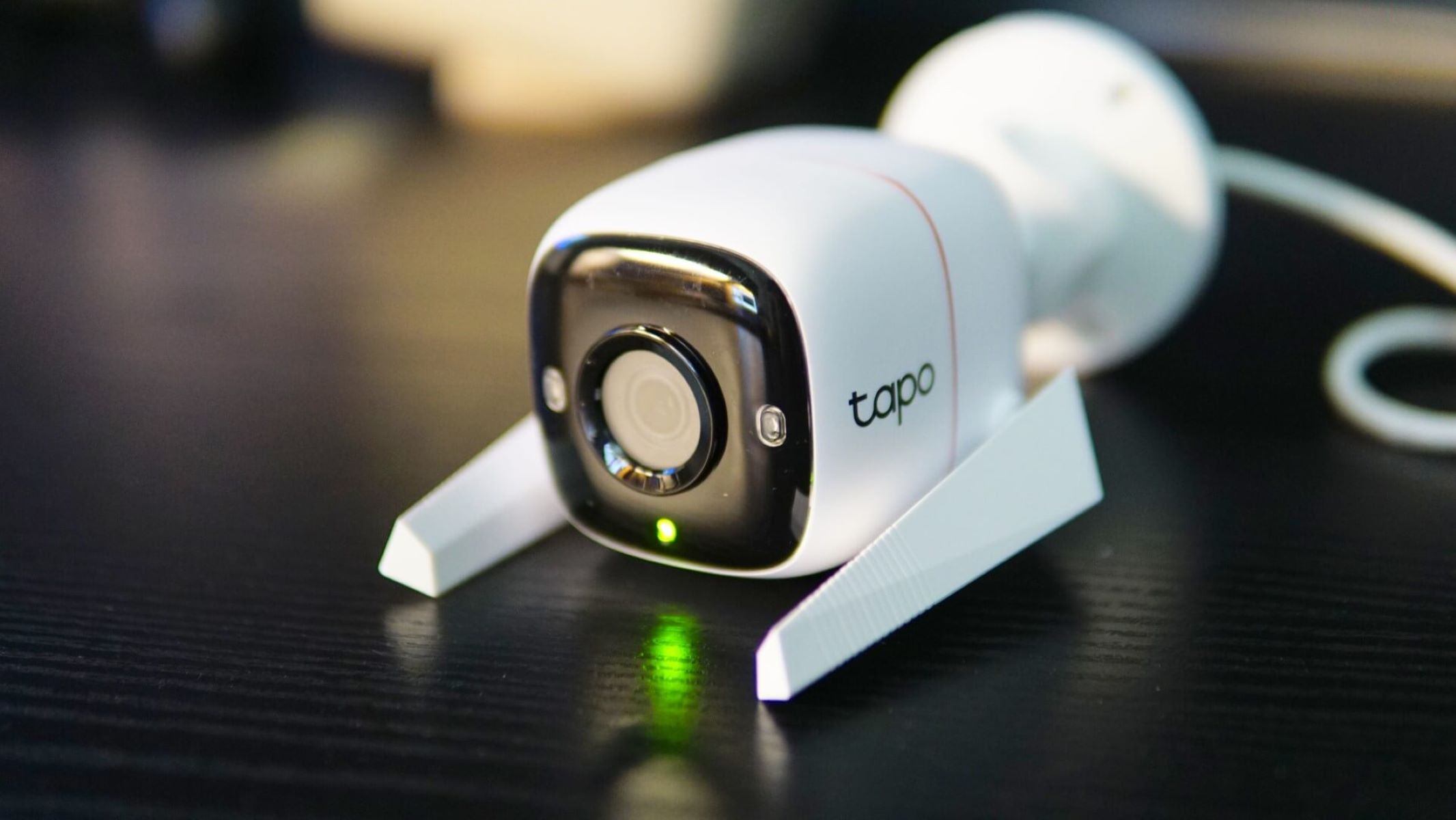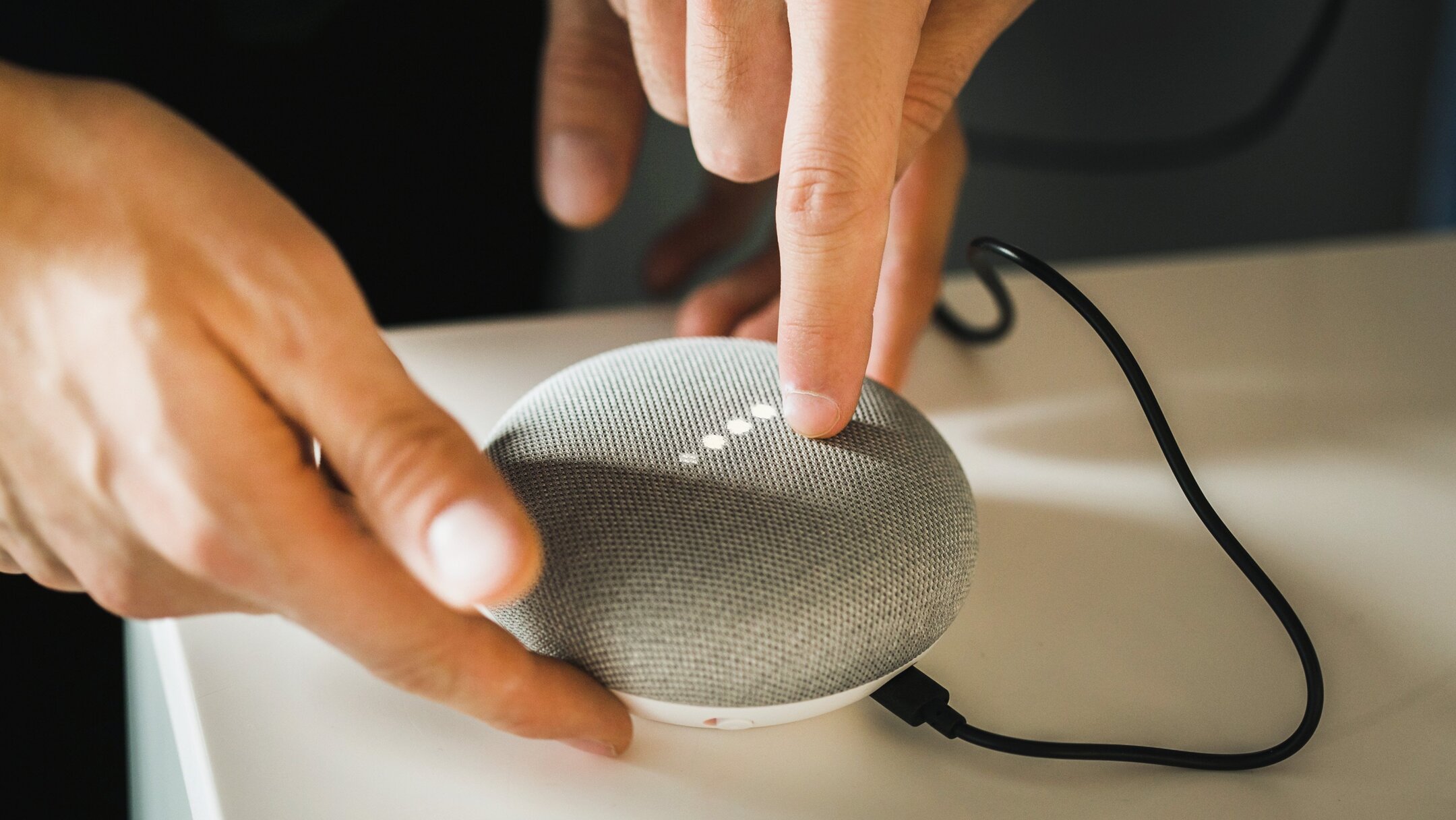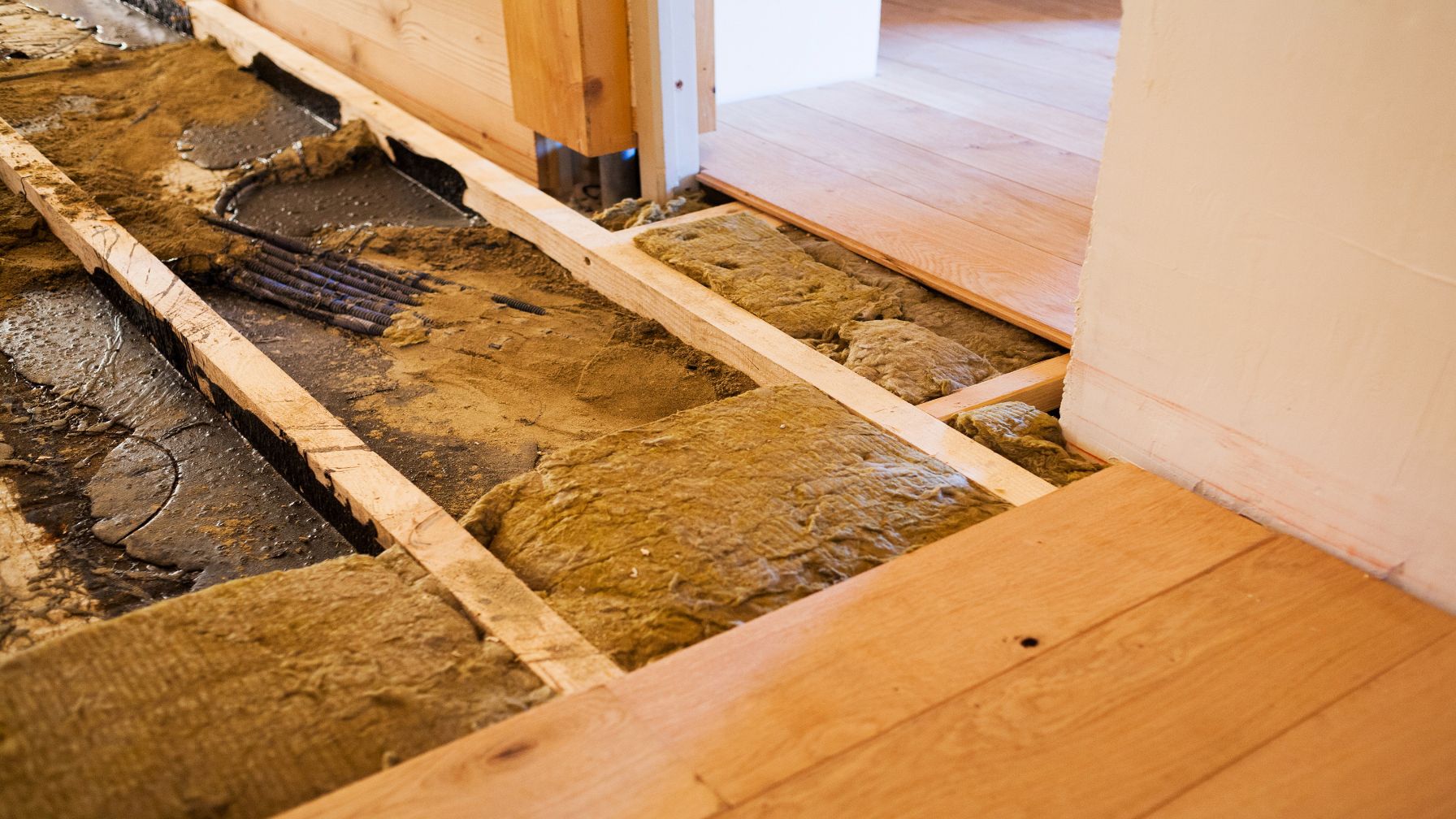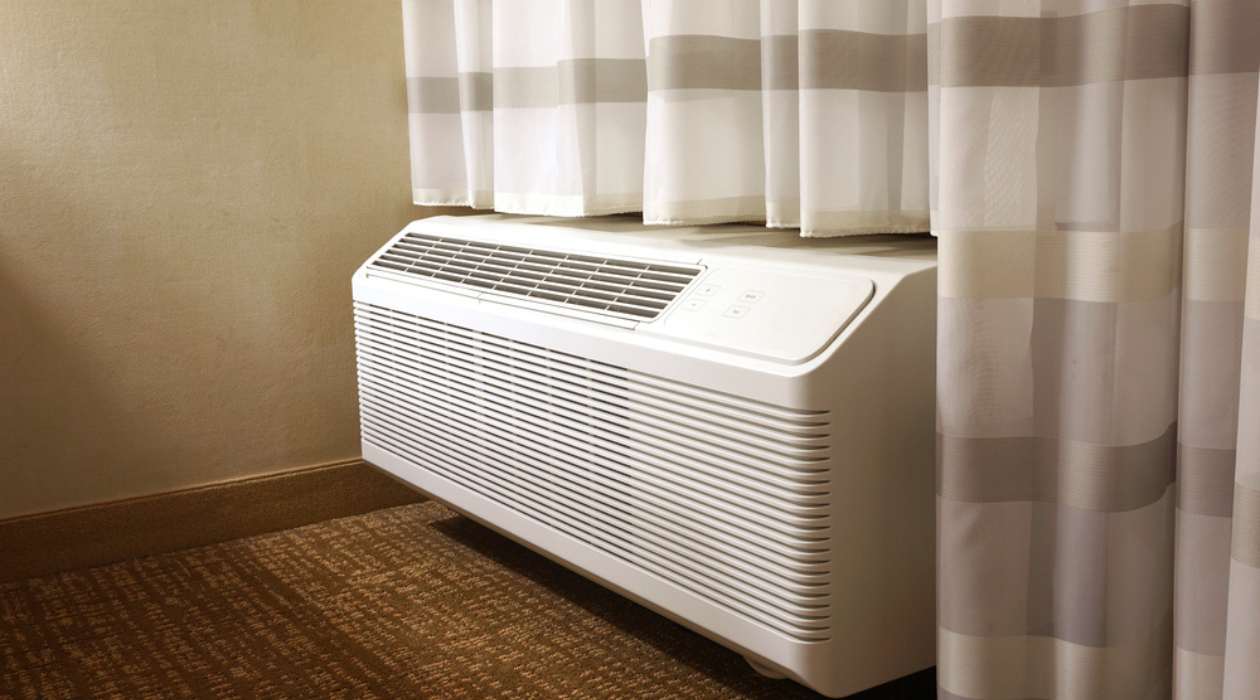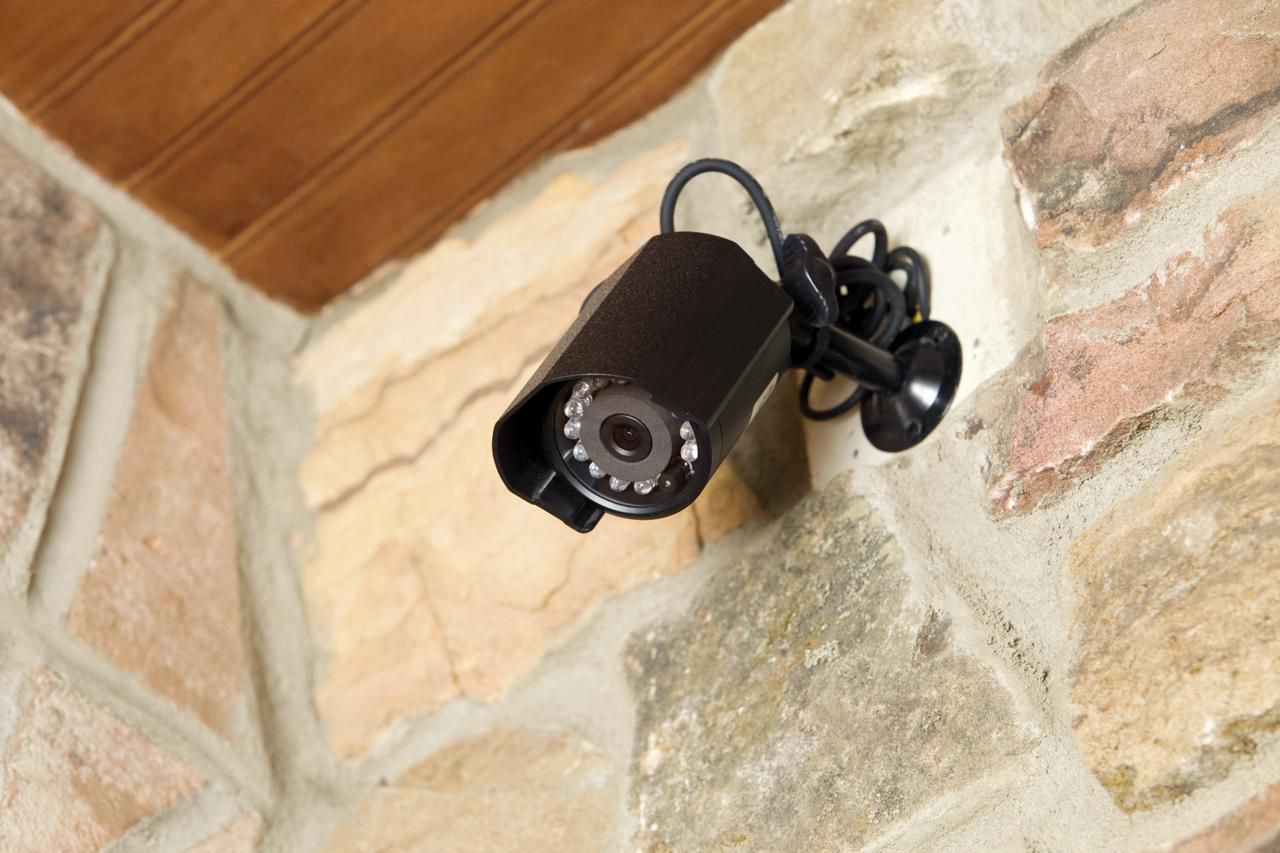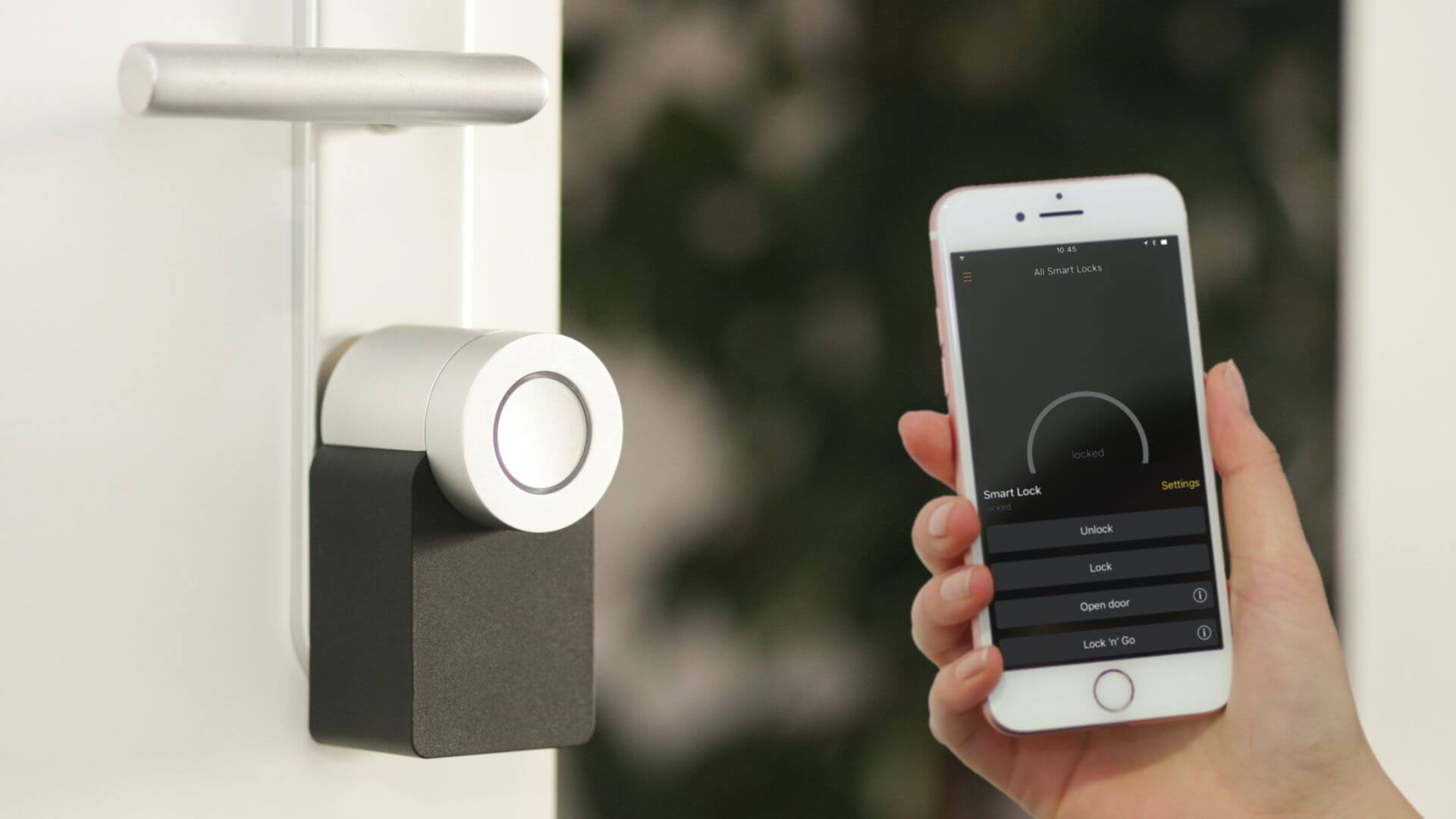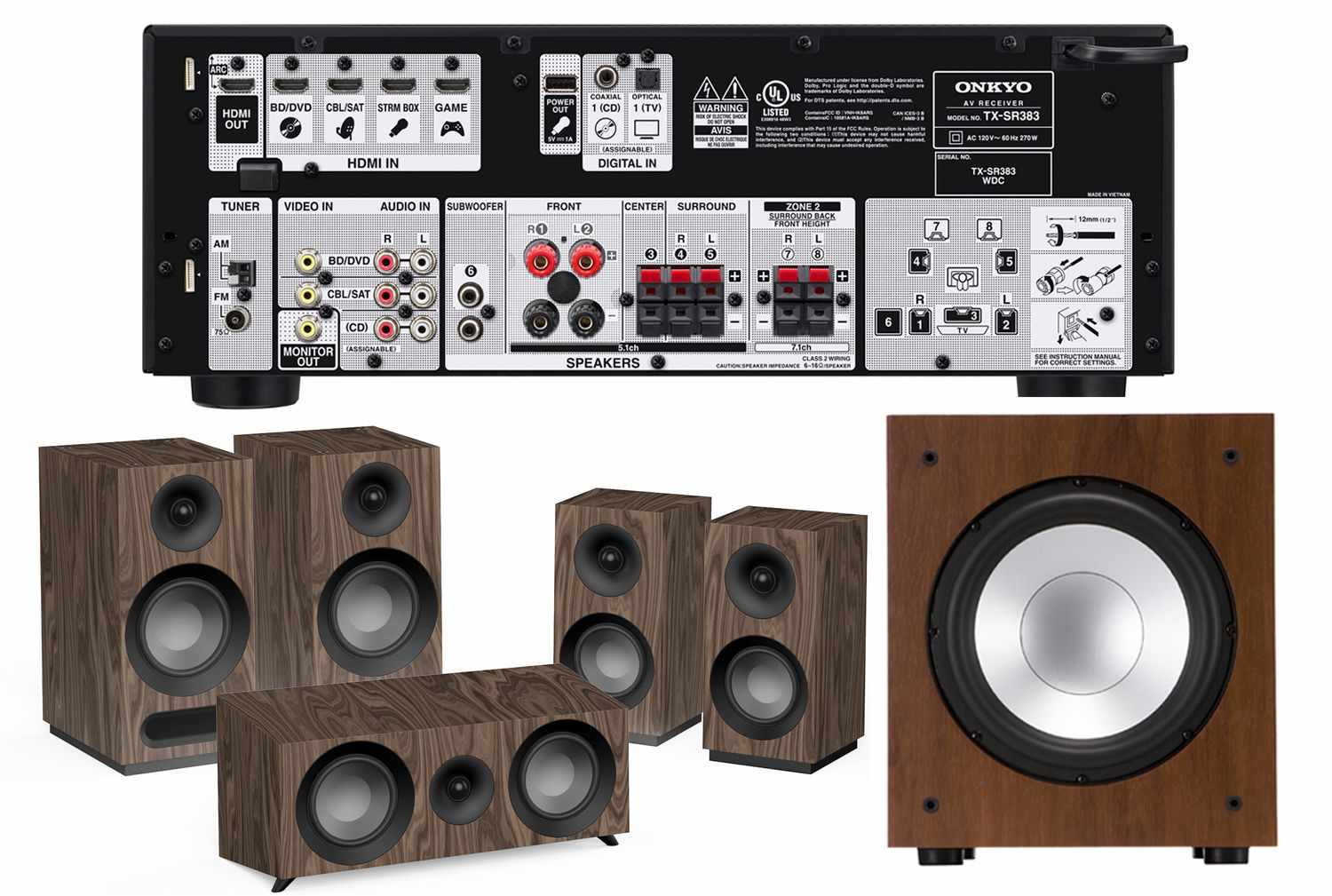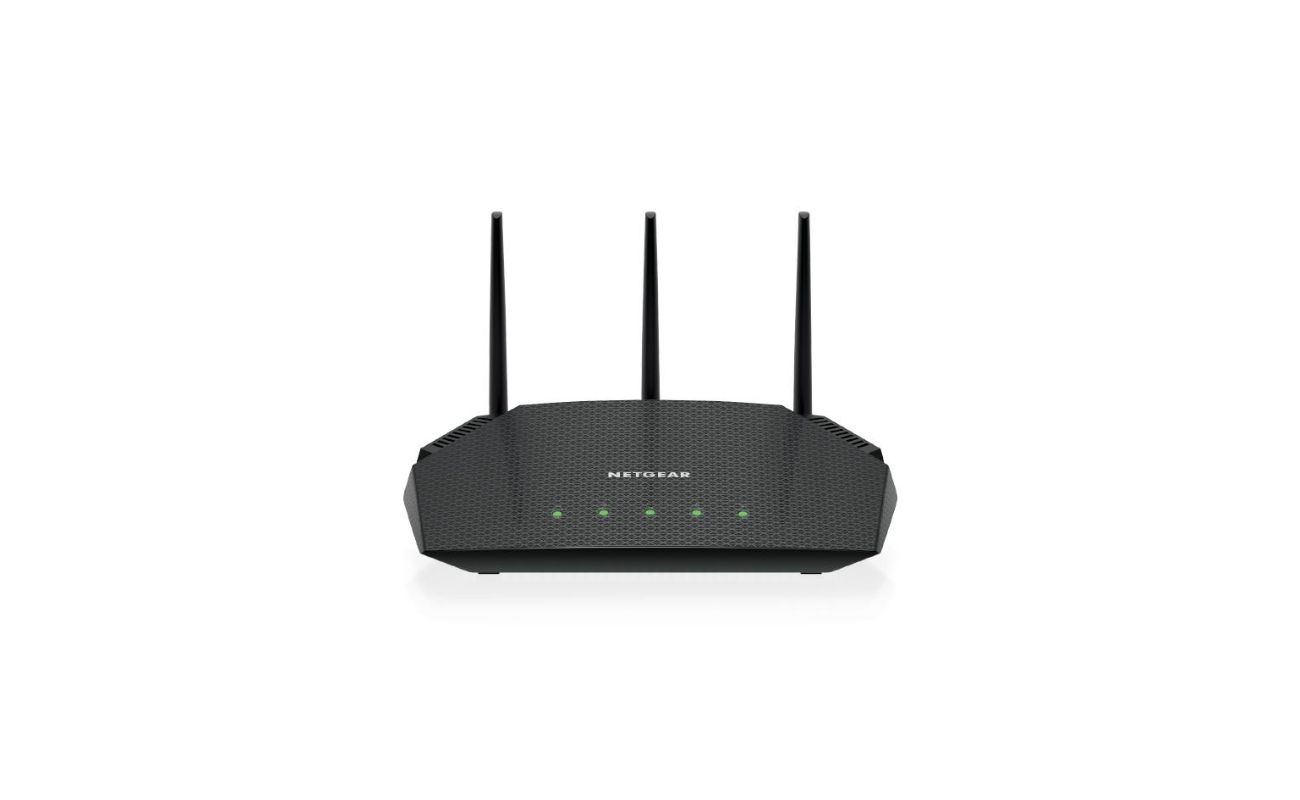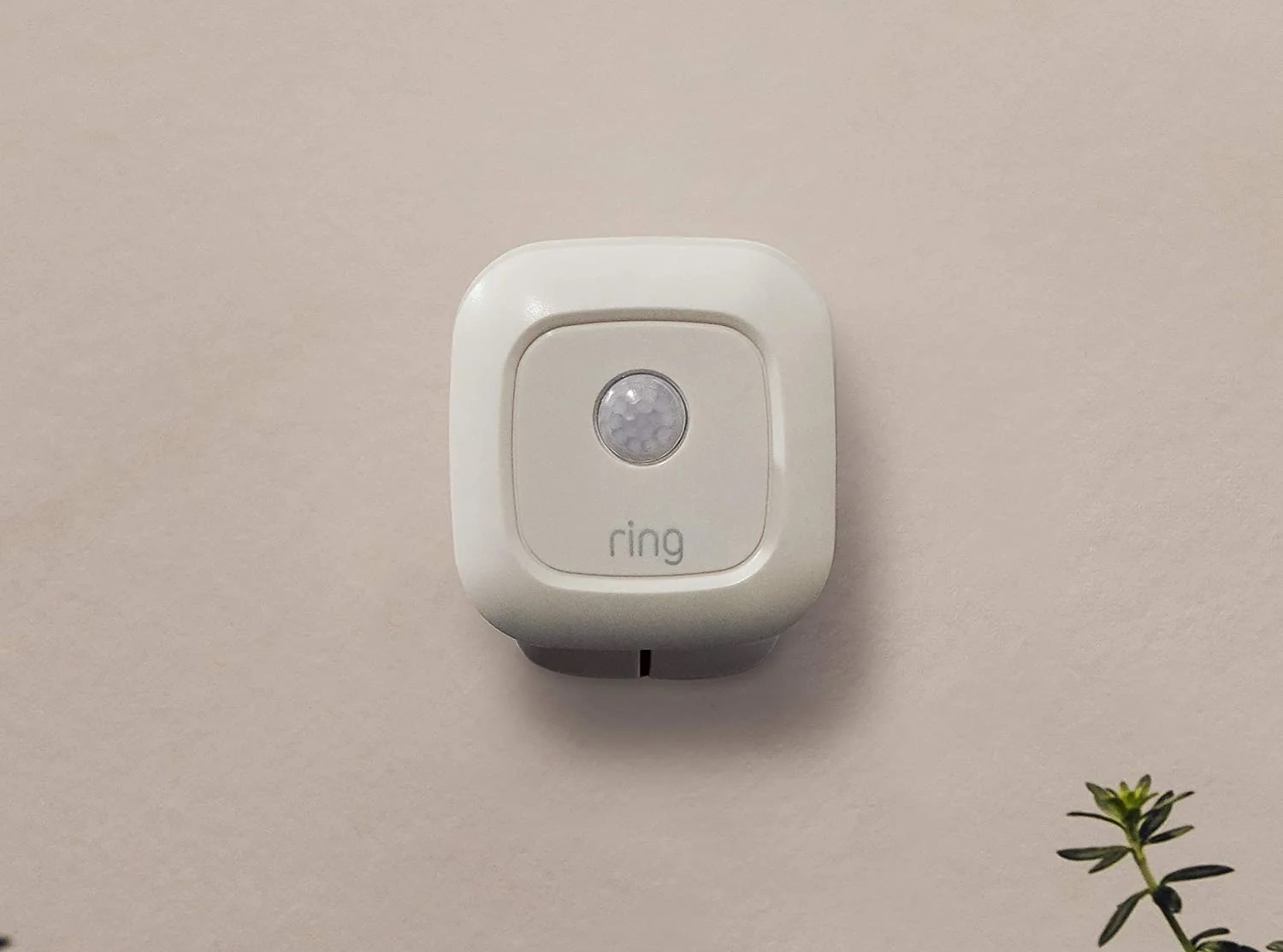Home>Home Maintenance>What Home Maintenance Should I Do
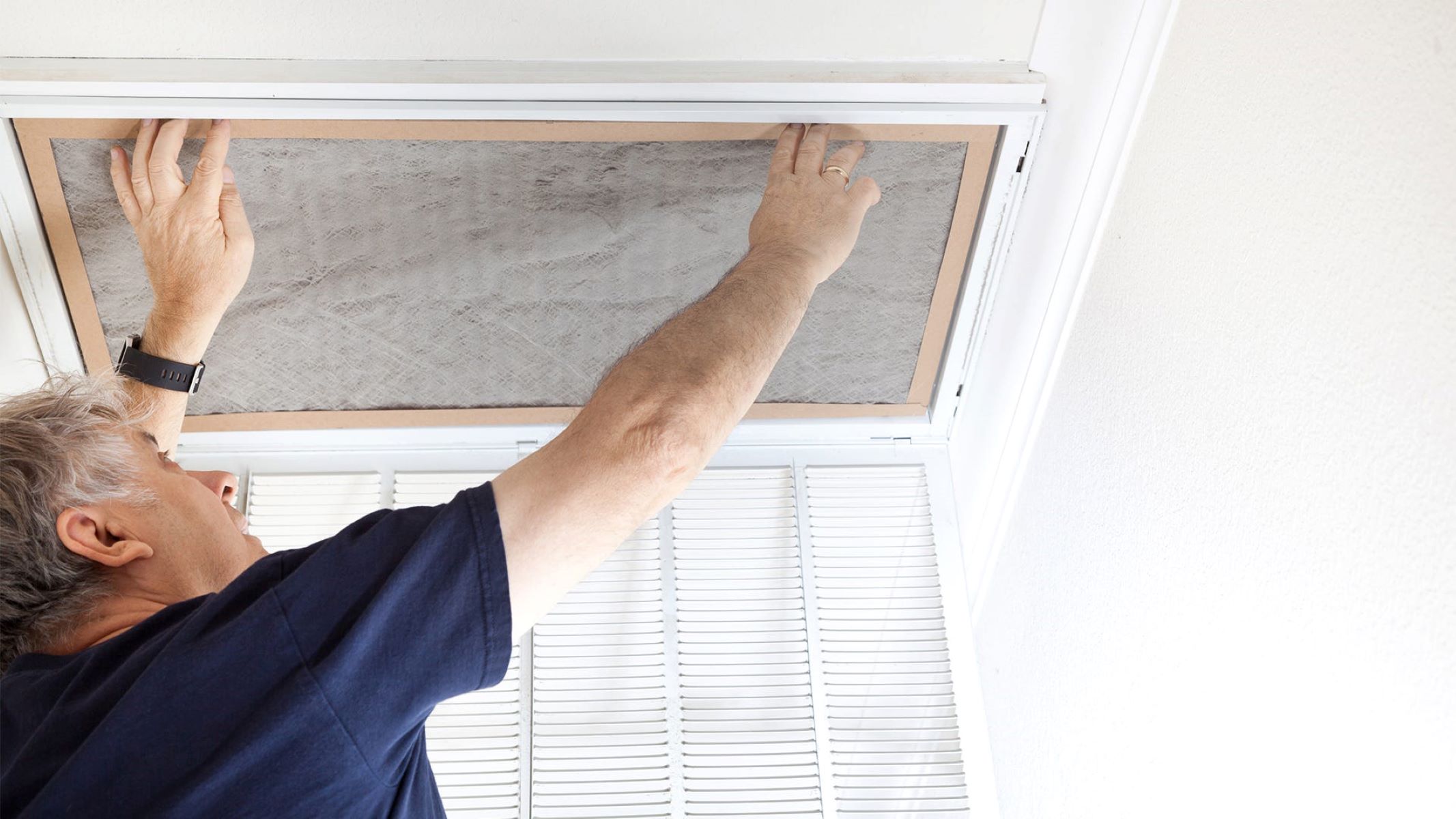

Home Maintenance
What Home Maintenance Should I Do
Modified: March 6, 2024
Discover essential home maintenance tasks and tips to keep your property in top shape. Learn what home maintenance you should do to ensure a safe and comfortable living environment.
(Many of the links in this article redirect to a specific reviewed product. Your purchase of these products through affiliate links helps to generate commission for Storables.com, at no extra cost. Learn more)
Introduction
Welcome to the world of home maintenance, where caring for your property is essential for its longevity and your overall comfort. Regular maintenance not only helps to preserve the value of your home but also prevents potential issues from turning into costly repairs down the line. Whether you’re a homeowner or a renter, taking proactive steps to maintain your home can save you time, money, and stress in the long run.
In this comprehensive guide, we will explore various aspects of home maintenance, providing you with invaluable tips and insights to keep your property in pristine condition. From exterior and interior maintenance to plumbing, electrical, and HVAC care, we’ll cover all the essential areas. We’ll also address the maintenance needs of your roof, gutters, lawn, garden, pool, spa, appliances, and even safety and security measures.
Remember, proper home maintenance is not just about repairing things when they break; it’s about ongoing care and preventive measures. By incorporating regular maintenance practices into your routine, you can extend the lifespan of your home, enhance its curb appeal, and ensure a safe and comfortable living environment for yourself and your loved ones.
Ready to dive into the world of home maintenance? Let’s get started with our first topic: exterior maintenance.
Key Takeaways:
- Regular home maintenance, from cleaning to safety checks, ensures a safe, comfortable, and visually appealing living space, preventing costly repairs and preserving the value of your home.
- By incorporating regular maintenance practices into your routine, you can extend the lifespan of your home, enhance its curb appeal, and ensure a safe and comfortable living environment for yourself and your loved ones.
Read more: What Water Heater Should I Buy
Exterior Maintenance
Your home’s exterior is the first line of defense against the elements. It not only contributes to the overall aesthetics of your property but also protects the structural integrity of your home. Here are some key areas to focus on when it comes to exterior maintenance:
- Roof: Regularly inspect your roof for any damaged or missing shingles. Clear away debris, such as leaves and branches, to prevent water pooling and potential leaks. Consider scheduling a professional roof inspection every few years to catch any issues early on.
- Gutters: Clean your gutters at least twice a year, preferably in spring and fall, to remove leaves, debris, and buildup. This will ensure proper water drainage and prevent clogs that could potentially lead to water damage or foundation issues.
- Siding: Inspect your siding for any signs of damage, such as cracks, peeling paint, or rot. Repair or replace damaged siding promptly to prevent water intrusion and maintain the overall appearance of your home.
- Windows and Doors: Check the weatherstripping around windows and doors to ensure a tight seal. Replace any damaged or worn weatherstripping to prevent drafts and improve energy efficiency. Regularly clean windows to keep them clear and maximize natural light.
- Exterior Paint: If your home has painted surfaces, inspect the paint for any signs of peeling, cracking, or fading. Repaint as needed to protect the exterior and maintain its visual appeal.
- Driveway and Walkways: Repair any cracks or potholes in your driveway or walkways to prevent accidents and preserve their longevity. Regularly sweep away debris and pressure wash surfaces to keep them clean and in good condition.
- Landscaping: Pay attention to your landscaping by keeping shrubs and trees trimmed away from the house. This will prevent potential damage from branches during storms and discourage pests from finding their way inside.
By maintaining the exterior of your home, you not only enhance its curb appeal but also protect against any potential damage that could compromise its structural integrity. Additionally, regular exterior maintenance can prevent costly repairs and improve energy efficiency, leading to long-term savings.
Now that we’ve covered exterior maintenance, let’s move on to the interior of your home and explore the essential aspects of interior maintenance.
Interior Maintenance
While the exterior of your home provides protection against the elements, the interior is where you spend most of your time. It’s important to maintain a clean, functional, and comfortable living space. Here are some key areas to focus on when it comes to interior maintenance:
- Cleaning: Regular cleaning is essential for a healthy and enjoyable living environment. Vacuum and mop floors, dust surfaces, clean windows, and deep clean carpets regularly. Don’t forget to clean hard-to-reach areas, such as behind appliances and under furniture.
- Air Quality: Indoor air quality can significantly impact your health and well-being. Change air filters regularly to ensure proper airflow and remove contaminants. Consider investing in a high-quality air purifier to further improve air quality.
- Plumbing Fixtures: Inspect faucets, showerheads, and toilets for any leaks or drips. Repair or replace faulty fixtures to conserve water and prevent potential water damage. Regularly clean showerheads and drains to prevent clogs.
- Electrical Systems: Check electrical outlets to ensure they are functioning properly. Test smoke detectors and carbon monoxide detectors, replacing batteries as needed. If you notice any electrical issues, such as flickering lights or outlets that are warm to the touch, contact a professional electrician.
- Appliances: Maintain your appliances by following proper cleaning and maintenance instructions. Regularly clean refrigerator coils, unclog dryer vents, and clean dishwasher filters. This will not only prolong the life of your appliances but also improve their efficiency.
- Paint and Wall Repair: Inspect walls for any cracks, holes, or peeling paint. Repair and touch up as necessary to maintain a fresh and well-maintained interior. Consider repainting high-traffic areas every few years to keep them looking their best.
- Flooring: Whether you have hardwood, tile, or carpet, proper maintenance is crucial. Sweep or vacuum regularly to remove dirt and debris. For carpeted areas, deep clean annually to remove stains and refresh the fibers.
- Heating and Cooling Systems: Schedule regular maintenance for your HVAC system to ensure optimal performance. Replace air filters as recommended and clean air vents to improve air circulation.
By maintaining the interior of your home, you create a comfortable and healthy living environment for yourself and your family. Regular cleaning, upkeep of plumbing and electrical systems, and proper maintenance of appliances and fixtures can prevent major issues and save you both time and money in the long run.
Now that we’ve covered interior maintenance, let’s move on to plumbing maintenance, an essential aspect of home care.
Plumbing Maintenance
Proper plumbing maintenance is crucial for preventing leaks, water damage, and costly repairs. By taking proactive steps to care for your plumbing system, you can ensure its longevity and optimize its performance. Here are some essential plumbing maintenance tips:
- Check for Leaks: Regularly inspect your faucets, toilets, and visible pipes for any signs of leaks, such as dripping or pooling water. Address leaks promptly to avoid water damage and conserve water.
- Test Water Pressure: Check the water pressure in your home by using a pressure gauge or consulting a plumber. High water pressure can strain pipes and fixtures, leading to leaks. If the pressure is too high, consider installing a pressure regulator.
- Clear Clogged Drains: Prevent clogged drains by using drain catchers and avoiding pouring grease, oil, or large food particles down the sink. Regularly clean out any debris from drains and use non-toxic drain cleaners to maintain proper flow.
- Insulate Pipes: In colder climates, insulate exposed pipes to protect them from freezing and potentially bursting. Frozen pipes can cause significant damage and be expensive to repair.
- Flush Water Heater: Regularly flush your water heater to remove sediment and mineral buildup. This will improve its efficiency and extend its lifespan.
- Preventative Maintenance: Consider scheduling annual professional plumbing inspections to catch any potential issues early on. A plumber can identify hidden leaks, check for proper functioning of water valves, and provide recommendations for maintenance or repairs.
- Be Mindful of Water Usage: Conserve water by using low-flow fixtures, fixing leaky faucets promptly, and practicing water-saving habits, such as taking shorter showers and only running the dishwasher and washing machine with full loads.
By incorporating these plumbing maintenance practices into your routine, you can prevent major plumbing issues, save water, and avoid costly repairs. If you encounter any complex plumbing problems or are unsure about how to perform maintenance tasks, it’s best to consult a professional plumber for assistance.
Now that we’ve covered plumbing maintenance, let’s move on to electrical maintenance, ensuring the safety and functionality of your home’s electrical systems.
Electrical Maintenance
Proper electrical maintenance is essential for the safety and functionality of your home’s electrical systems. It’s crucial to ensure that your electrical wiring, outlets, and appliances are in good condition to prevent electrical hazards and potential fire risks. Here are some important electrical maintenance tips:
- Inspect Outlets and Switches: Regularly check your outlets and switches for any signs of damage or wear. If you notice buzzing sounds, flickering lights, or outlets that feel warm to the touch, contact a licensed electrician to assess and address the issue.
- Replace Damaged Cords and Plugs: Frayed or damaged cords and plugs can pose a safety hazard. Replace them immediately to prevent electrical shock or fire accidents.
- Test Ground Fault Circuit Interrupters (GFCIs): GFCIs are designed to protect against electrical shock. Test your GFCIs monthly by pressing the “Test” button and ensure they are functioning correctly. Call an electrician if any GFCIs are not working properly.
- Check and Replace Smoke Detectors: Smoke detectors save lives, so it’s important to test them regularly and replace the batteries annually. Replace smoke detectors every 10 years to ensure they are up to date.
- Inspect and Clean Electrical Panels: Ensure that your electrical panel is in good condition and free of any debris. Keep the area surrounding the panel clear for easy access. If you notice any issues, such as burnt smells or tripped breakers, contact an electrician for assistance.
- Reduce Electrical Overload: Spread your electrical usage by not overloading outlets with too many devices. Use power strips with surge protectors to protect your electronics from power surges.
- Hire a Professional Electrician: If you’re unsure about any electrical maintenance tasks or if you encounter complex issues, it’s best to hire a licensed electrician. They have the knowledge and expertise to handle electrical repairs and inspections safely.
Remember, electrical maintenance should not be taken lightly. Faulty wiring and electrical equipment can lead to fires, electrical shock, and other dangerous situations. If you experience any electrical issues or are unsure about how to perform maintenance tasks, it’s best to consult a professional electrician for assistance.
Now that we’ve covered electrical maintenance, let’s move on to HVAC maintenance, which is crucial for a comfortable and energy-efficient home.
Read more: What Should I Set For My Wireless Security
HVAC Maintenance
HVAC (Heating, Ventilation, and Air Conditioning) systems play a vital role in keeping your home comfortable and maintaining indoor air quality. Regular maintenance of your HVAC system is necessary to ensure its optimal performance, energy efficiency, and longevity. Here are some essential HVAC maintenance tips:
- Replace Air Filters: Regularly replace air filters to ensure proper airflow and prevent dust and debris from circulating in your home. Clogged filters can reduce the efficiency of your HVAC system and lead to poor indoor air quality.
- Clean Vents and Ductwork: Vacuum and clean air vents to remove dust and debris that can obstruct airflow. If you have accessible ductwork, consider scheduling a professional duct cleaning every few years to remove accumulated dirt and improve air quality.
- Clear Outdoor Unit: If you have an outdoor AC unit or heat pump, regularly clear away leaves, debris, and vegetation that can obstruct airflow. Trim vegetation around the unit to ensure proper airflow and prevent damage.
- Schedule Annual HVAC Maintenance: Consider scheduling annual professional HVAC maintenance. A qualified technician will inspect and clean your system, check for any issues or potential problems, and ensure its optimal performance.
- Check Thermostat Settings: Regularly check and adjust thermostat settings according to the seasons and your comfort preferences. Utilize programmable or smart thermostats to optimize energy efficiency and create a comfortable home environment.
- Test Heating and Cooling: Test both the heating and cooling functions of your HVAC system before each respective season. This will ensure that both systems are working properly and provide adequate comfort.
- Seal Air Leaks: Inspect windows, doors, and other areas where air leaks may occur. Seal any gaps or cracks to prevent conditioned air from escaping and improve energy efficiency.
- Monitor Energy Consumption: Keep track of your HVAC system’s energy consumption. If you notice a sudden increase in energy usage or a significant decrease in efficiency, it may indicate a problem that requires professional attention.
Regular HVAC maintenance is crucial for maintaining a comfortable and energy-efficient home. By following these maintenance tips, you can prolong the life of your HVAC system, optimize its performance, and ensure a comfortable living environment all year round.
Now that we’ve covered HVAC maintenance, let’s move on to roof and gutter maintenance, which is vital for protecting your home against water damage and ensuring its structural integrity.
Regularly clean and inspect your gutters to prevent clogs and water damage to your home. Remove debris and check for any leaks or damage to ensure they function properly.
Roof and Gutter Maintenance
Your roof and gutters are essential components of your home’s exterior that require regular maintenance to prevent water damage, leaks, and other costly issues. Here are some key tips for roof and gutter maintenance:
- Inspect Your Roof: Conduct regular visual inspections of your roof to check for cracked, damaged, or missing shingles. Look out for any signs of wear and tear, such as curled edges or granule loss. Address any issues promptly to prevent water penetration.
- Clean Gutters and Downspouts: Regularly clean out your gutters and downspouts to remove leaves, twigs, and debris that can cause clogs. Clogged gutters can lead to water overflow, which can damage your roof, siding, and foundation.
- Check for Proper Water Flow: Ensure that your gutters and downspouts are properly directing water away from your home’s foundation. Adjust and repair any misaligned or damaged components to prevent water pooling near the foundation.
- Trim Overhanging Tree Branches: Trim any tree branches that are hanging over your roof. Branches can scrape against the roof, causing damage to shingles and potentially providing access points for pests.
- Inspect Flashing and Sealants: Check the flashing around vents, chimneys, skylights, and other roof penetrations for signs of damage or deterioration. Replace any damaged flashing or sealants to ensure a watertight seal.
- Remove Moss and Algae: If you notice moss or algae growth on your roof, take steps to remove it. These organisms can trap moisture, leading to roof damage. Use a gentle cleaning solution or hire professionals for safe and effective removal.
- Consider Professional Roof Inspections: Schedule a professional roof inspection every few years, especially if your roof is older. A professional can identify hidden issues and provide recommendations for repairs or maintenance.
- Routine Maintenance: Make roof and gutter maintenance a part of your routine. Regularly remove debris from the roof and keep an eye out for any signs of damage or leaks.
By properly maintaining your roof and gutters, you can extend their lifespan and prevent costly water damage to your home. Regular inspections and maintenance are key to identifying and addressing issues before they escalate.
Now that we’ve covered roof and gutter maintenance, let’s move on to lawn and garden maintenance, which will help enhance the curb appeal and overall aesthetics of your property.
Lawn and Garden Maintenance
A well-maintained lawn and garden can elevate the curb appeal of your home and create a beautiful outdoor living space. Regular lawn and garden maintenance not only enhances the aesthetics of your property but also promotes healthy growth and prevents the spread of weeds and pests. Here are some essential tips for lawn and garden maintenance:
- Mow the Lawn Regularly: Keep your lawn neatly trimmed by mowing it regularly. Adjust your mower height according to the season and grass type, ensuring that you never cut more than one-third of the grass blade at a time.
- Water Adequately: Water your lawn deeply and infrequently to encourage deep root growth. Aim to provide about 1 inch of water per week, either through rainfall or irrigation. Water in the early morning to minimize evaporation.
- Fertilize as Needed: Apply fertilizer to your lawn and garden based on the specific needs of your soil and plants. Use a slow-release fertilizer to ensure a steady nutrient supply and prevent over-fertilization.
- Control Weeds: Regularly inspect your lawn and garden for weeds and take appropriate measures to control them. This may involve hand-pulling, using herbicides, or employing natural weed-control methods.
- Monitor for Pests and Diseases: Keep an eye out for signs of pests or diseases in your lawn and garden. Treat any issues promptly to prevent further damage. Consider using organic pest-control methods whenever possible.
- Prune and Trim: Regularly prune trees, shrubs, and plants to maintain their shape, promote healthy growth, and prevent overcrowding. Remove dead or damaged branches to prevent potential hazards.
- Remove Yard Debris: Clean up fallen leaves, branches, and other debris from your lawn and garden regularly. This not only improves the appearance of your outdoor space but also reduces the risk of pests and diseases.
- Provide Adequate Mulching: Apply a layer of organic mulch around your plants to help retain moisture, suppress weeds, and regulate soil temperature. Be careful not to pile mulch too close to the stems of plants, as it can cause rot.
- Consider Sustainable Practices: Embrace sustainable lawn and garden practices, such as using native plants, collecting rainwater for irrigation, and composting yard waste. These practices can conserve resources and support a healthy ecosystem.
By following these lawn and garden maintenance tips, you can create an inviting outdoor space that enhances the beauty of your home while promoting the health and vitality of your plants. Regular care and attention will keep your lawn and garden flourishing throughout the year.
Now that we’ve covered lawn and garden maintenance, let’s move on to pool and spa maintenance, which is essential for ensuring a safe and enjoyable aquatic experience in your backyard.
Pool and Spa Maintenance
Having a pool or spa can provide endless hours of relaxation and enjoyment. However, it’s important to properly maintain them to ensure a safe and clean environment. Regular pool and spa maintenance will help keep the water balanced, prevent algae growth, and extend the lifespan of your equipment. Here are some key tips for pool and spa maintenance:
- Monitor Water Chemistry: Regularly test and adjust the pH, chlorine, and alkalinity levels of your pool or spa water. Maintaining proper balance is crucial for sanitation and preventing the growth of bacteria and algae.
- Skim and Clean: Skim the surface of your pool or spa to remove leaves, debris, and other floating particles. Vacuum the bottom of the pool or spa regularly to remove dirt and sediment.
- Brush and Scrub: Brush the walls and floors of your pool or spa to remove algae and prevent stains. Use a pool brush or a scrub brush designed specifically for spas.
- Empty Skimmer and Pump Baskets: Regularly empty and clean the skimmer and pump baskets to ensure proper water flow and prevent blockages.
- Inspect and Clean Filters: Check and clean your pool or spa filters regularly. Depending on the type of filter, this may involve backwashing, rinsing, or replacing the filter media.
- Check and Maintain Water Level: Keep an eye on the water level of your pool or spa and ensure it remains at the recommended level. Add water as needed to prevent damage to the pump and other equipment.
- Winterize (if applicable): If you live in a colder climate, properly winterize your pool or spa to protect it from freezing temperatures. This may involve draining the water, adding antifreeze, and covering the pool or spa.
- Regular Inspections: Schedule regular professional inspections of your pool or spa to ensure that all equipment is functioning correctly. A professional can identify any potential issues and provide necessary repairs or maintenance.
- Follow Safety Guidelines: Always follow safety guidelines and local regulations when using your pool or spa. Install safety barriers, teach children about pool safety, and have appropriate safety equipment on hand.
By following these pool and spa maintenance tips, you can ensure that your pool or spa remains clean, safe, and enjoyable for everyone. Regular maintenance not only extends the life of your equipment but also enhances your overall swimming and relaxation experience.
Now that we’ve covered pool and spa maintenance, let’s move on to appliance maintenance, which will help keep your household appliances running smoothly and efficiently.
Appliance Maintenance
Your household appliances play a significant role in your daily life, making chores easier and more convenient. To keep these appliances running smoothly and efficiently, regular maintenance is essential. Proper care and maintenance will not only extend the lifespan of your appliances but also improve their performance. Here are some key tips for appliance maintenance:
- Refrigerator: Clean the condenser coils at least twice a year to remove dust and debris, improving the efficiency of your refrigerator. Regularly check the door seals and replace them if they are loose or damaged to maintain proper temperature control.
- Dishwasher: Clean and unclog the dishwasher spray arms and filters regularly to ensure optimal water flow and prevent food buildup. Check the door gasket for any signs of wear or damage and replace it if necessary to prevent leaks.
- Washing Machine: Periodically clean your washing machine drum, detergent dispenser, and rubber door seal. Run a cleaning cycle with vinegar or a specialized washer cleaner to remove any residue and maintain freshness.
- Dryer: Clean the lint trap after every load to prevent lint buildup, which can lead to reduced airflow and fire hazards. Regularly check and clean the dryer vent to ensure proper ventilation and prevent potential blockages.
- Oven and Stove: Clean spills and food debris from your oven and stove regularly. Use appropriate oven cleaners and follow the manufacturer’s guidelines. If applicable, check and replace faulty burner elements or ignition systems.
- Microwave: Wipe the interior of your microwave regularly to remove food splatters and stains. Check and clean the door seals to ensure a tight seal and proper operation.
- Coffee Maker: Clean and descale your coffee maker regularly to remove mineral deposits and ensure optimal performance. Follow the manufacturer’s instructions to maintain the quality of your coffee.
- Small Appliances: Clean and maintain small appliances, such as toasters, blenders, and mixers, according to the manufacturer’s instructions. Check the cords for any damage or fraying and replace them if necessary to prevent electrical hazards.
- Read the Manuals: Familiarize yourself with the user manuals of your appliances. They provide important maintenance and troubleshooting information specific to each appliance model.
By following these appliance maintenance tips, you can maximize the performance and lifespan of your household appliances. Regular cleaning, inspections, and minor repairs can help prevent breakdowns, improve energy efficiency, and save you from costly repairs or replacements.
Now that we’ve covered appliance maintenance, let’s move on to safety and security maintenance, ensuring the well-being and protection of your home and family.
Safety and Security Maintenance
Ensuring the safety and security of your home and family should be a top priority. Regular maintenance and attention to safety and security measures can help protect against potential hazards and provide you with peace of mind. Here are some key tips for safety and security maintenance:
- Smoke Detectors and Carbon Monoxide Detectors: Test your smoke detectors and carbon monoxide detectors regularly to ensure they are functioning properly. Replace batteries annually and replace the detectors every 10 years.
- Fire Extinguishers: Place fire extinguishers in key areas of your home, such as the kitchen and garage. Check the pressure gauge regularly and ensure the extinguisher is easily accessible and not expired.
- Home Security Systems: If you have a home security system, test it regularly and ensure all sensors and cameras are working correctly. Update passcodes and make sure all entry points are secure.
- Doors and Windows: Inspect doors and windows for proper functioning, including locks and seals. Replace any damaged or broken locks and consider installing deadbolts for added security.
- Outdoor Lighting: Install outdoor lighting or motion sensor lights to illuminate the exterior of your home, especially entrances and pathways. Well-lit areas can deter potential intruders.
- Emergency Preparedness: Create an emergency preparedness plan for your family, including escape routes, a designated meeting point, and emergency contacts. Regularly review and practice the plan.
- Childproofing: If you have young children, ensure your home is properly childproofed. Install safety gates, secure cabinets, and cover electrical outlets to minimize the risk of accidents.
- Inspect Electrical Cords and Wiring: Regularly check electrical cords for fraying or damage. Avoid overloading outlets and use surge protectors. If you notice any electrical issues, contact a licensed electrician.
- Secure Important Documents and Valuables: Store important documents and valuables in a secure location, such as a fireproof safe. Make digital copies of important documents and store them securely.
- Regular Home Inspections: Schedule regular home inspections to identify any potential safety hazards, such as leaky pipes, structural issues, or faulty wiring. Address any issues promptly to prevent accidents.
By implementing these safety and security maintenance measures, you can create a secure environment for your home and family. Regular inspections and maintenance will help identify vulnerabilities and prevent potential accidents or security breaches.
Now that we’ve covered safety and security maintenance, you have a comprehensive understanding of the various aspects of home maintenance. By incorporating these tips into your regular routine, you can ensure that your home remains in top condition, providing you with a safe, comfortable, and enjoyable living space.
Remember, regular maintenance is key to avoiding expensive repairs and preserving the value of your home. Take pride in maintaining your home and enjoy the benefits of a well-cared-for property.
Conclusion
Congratulations! You have now gained a comprehensive understanding of the various aspects of home maintenance. By following these tips and incorporating regular maintenance into your routine, you can ensure that your home remains in pristine condition, providing you with a comfortable and safe living environment.
From exterior maintenance, such as caring for your roof, gutters, and landscaping, to interior maintenance, including cleaning, electrical checks, and appliance care, each aspect plays a crucial role in the longevity and functionality of your home. Taking proactive steps to maintain your property will not only prevent potential issues but also save you time, money, and stress in the long run.
Remember, home maintenance is an ongoing process. By regularly inspecting, cleaning, and servicing various areas of your home, you can identify and address any issues before they escalate into costly repairs. Additionally, staying up to date with safety and security maintenance will ensure the well-being and protection of your home and family.
Whether you choose to tackle these maintenance tasks on your own or seek professional help, the key is to be proactive and consistent. Regular inspections, cleaning, and minor repairs can go a long way in preserving the value of your home and creating a comfortable and visually appealing living space.
So roll up your sleeves, gather your tools, and get started on your home maintenance journey. Your efforts will pay off in the form of a well-cared-for home that provides you with years of comfort and enjoyment.
Remember, your home is your sanctuary, and maintaining it is a labor of love. Embrace the process, stay proactive, and enjoy the benefits of a well-maintained home!
Frequently Asked Questions about What Home Maintenance Should I Do
Was this page helpful?
At Storables.com, we guarantee accurate and reliable information. Our content, validated by Expert Board Contributors, is crafted following stringent Editorial Policies. We're committed to providing you with well-researched, expert-backed insights for all your informational needs.
